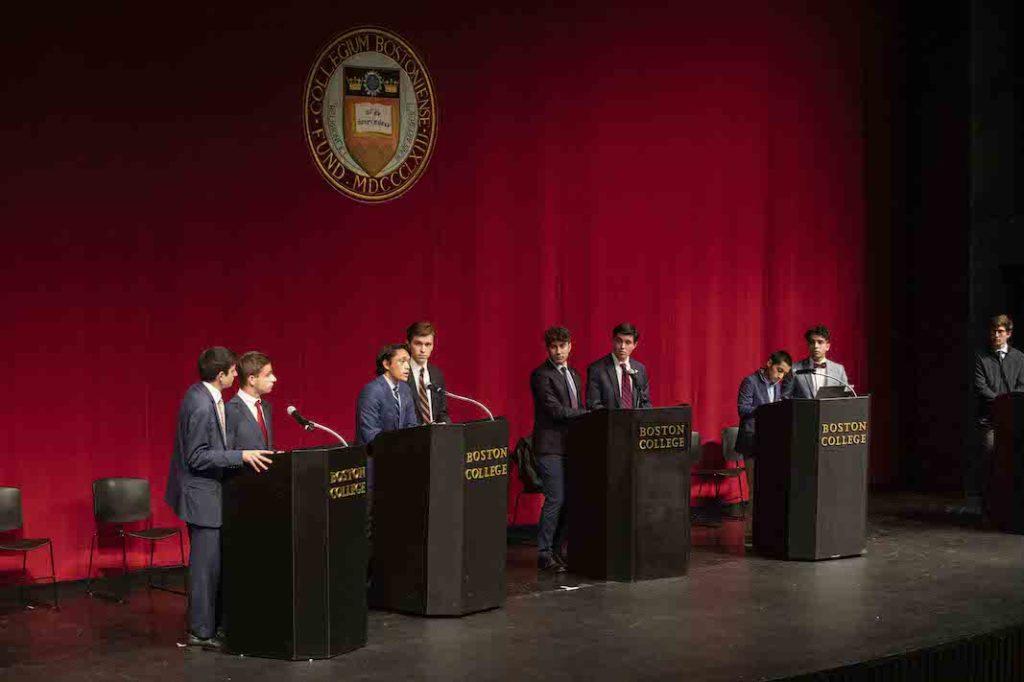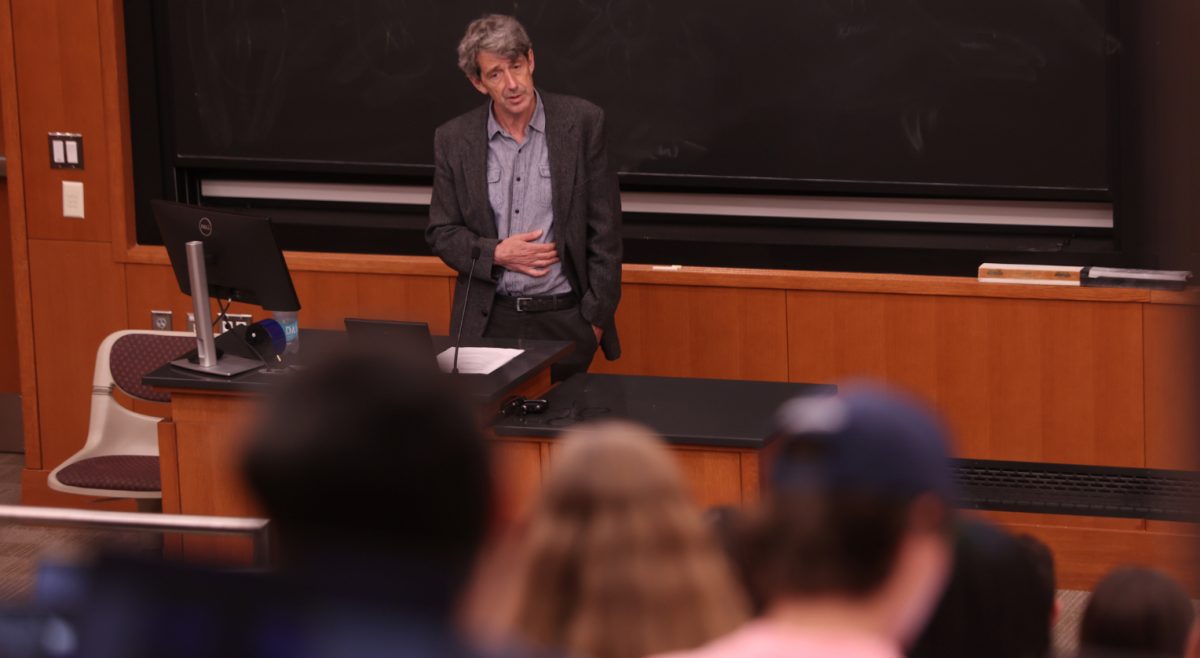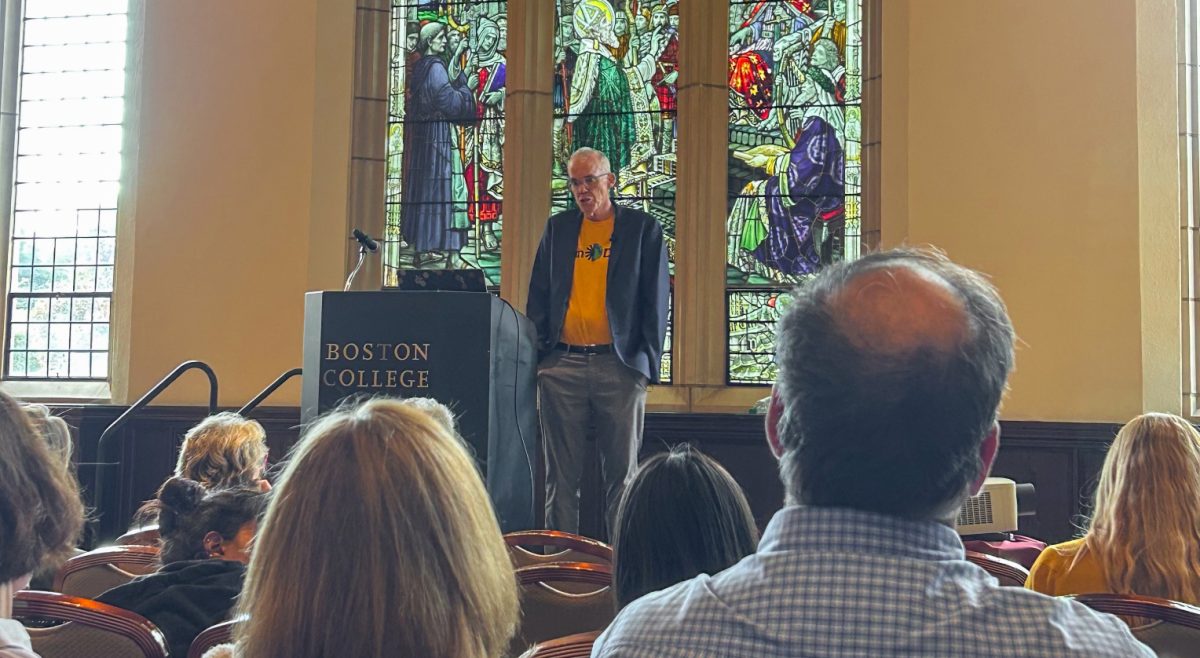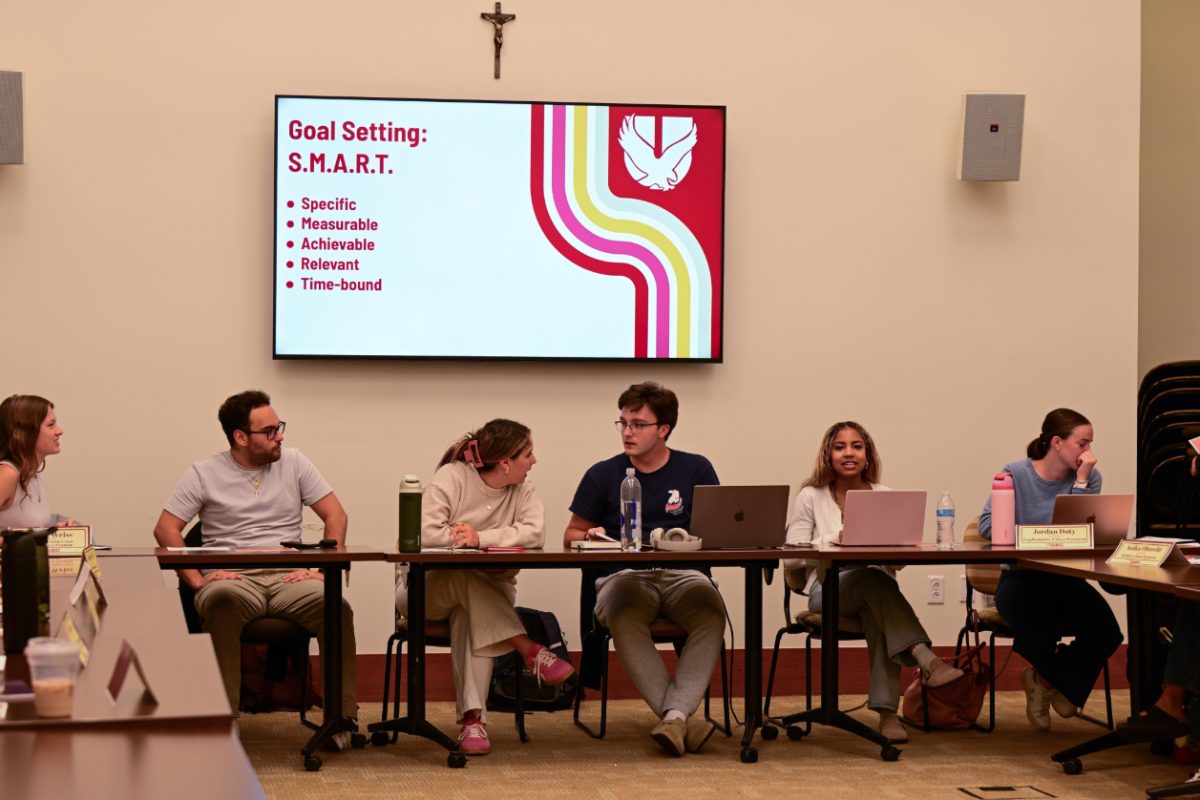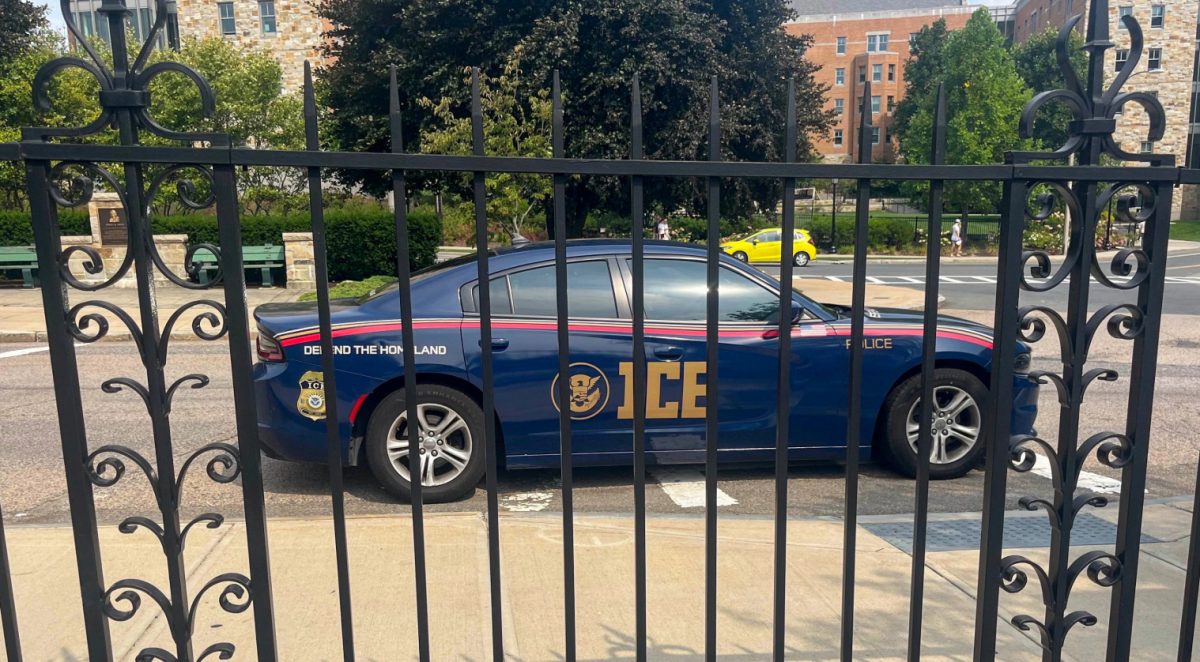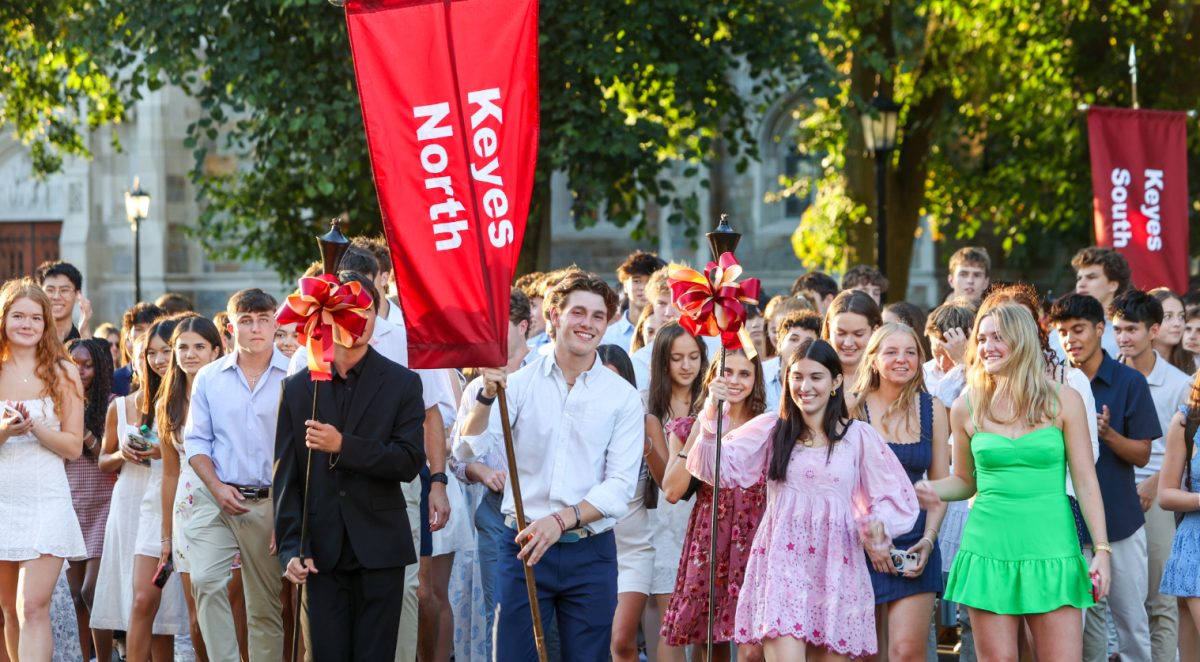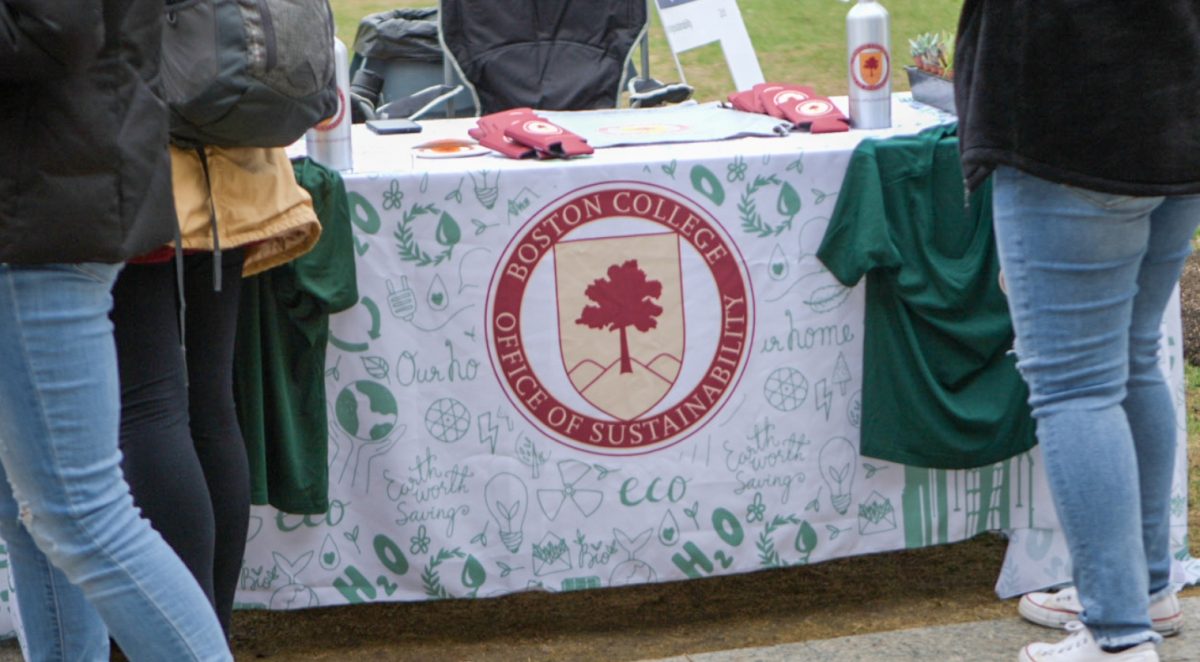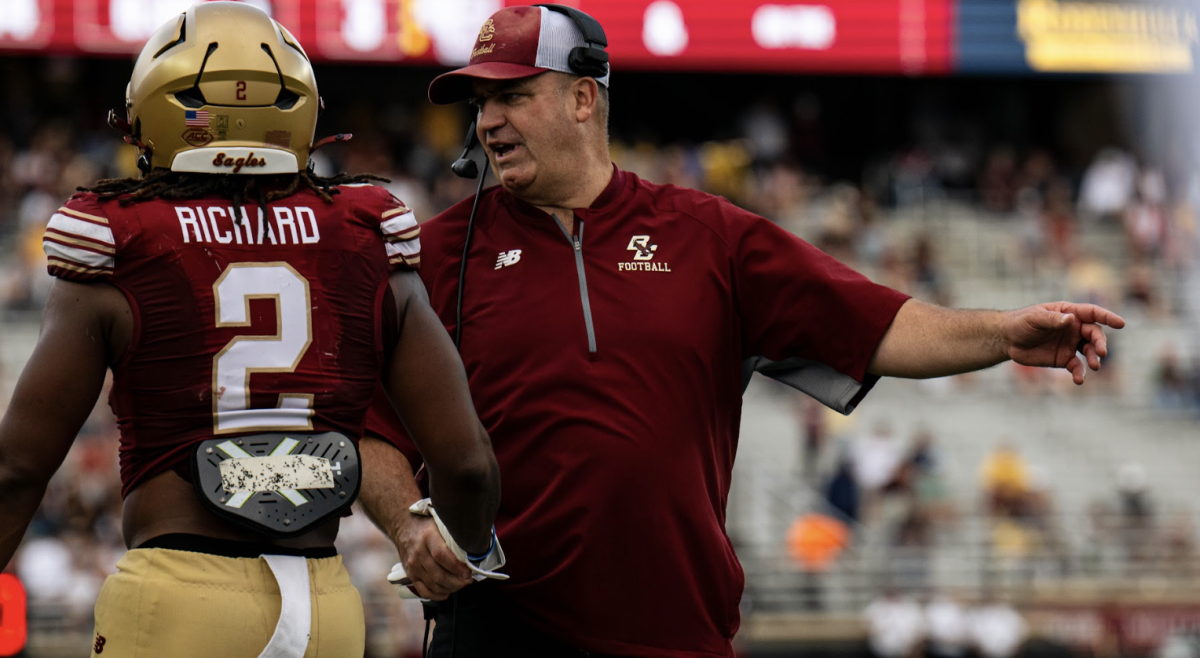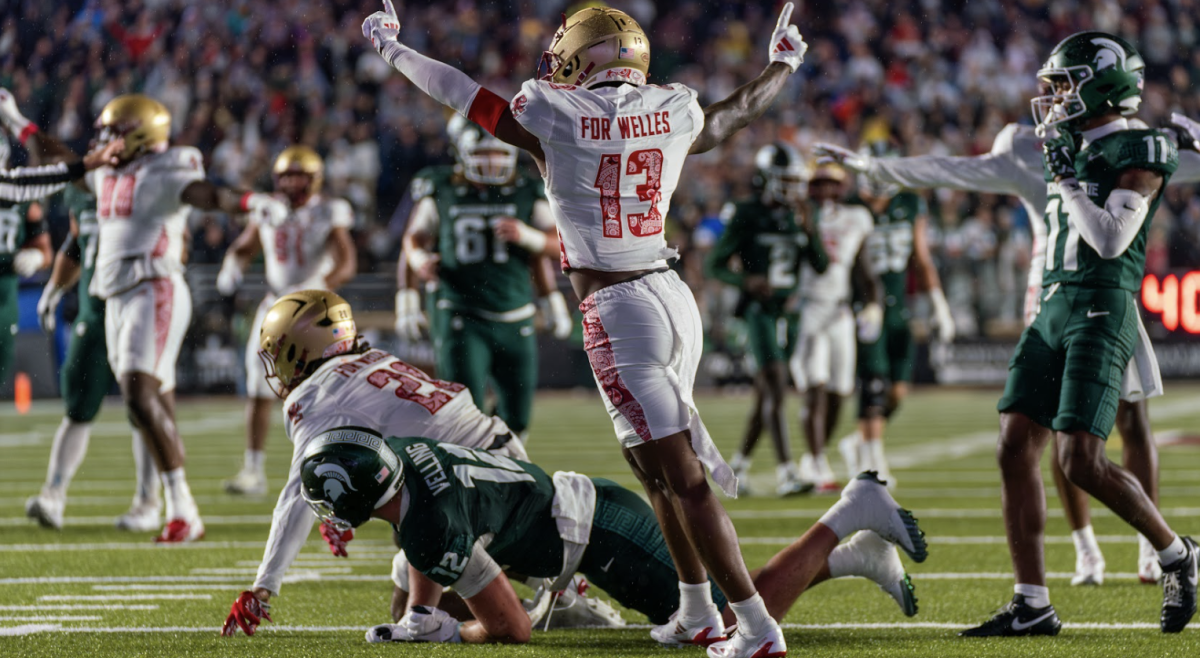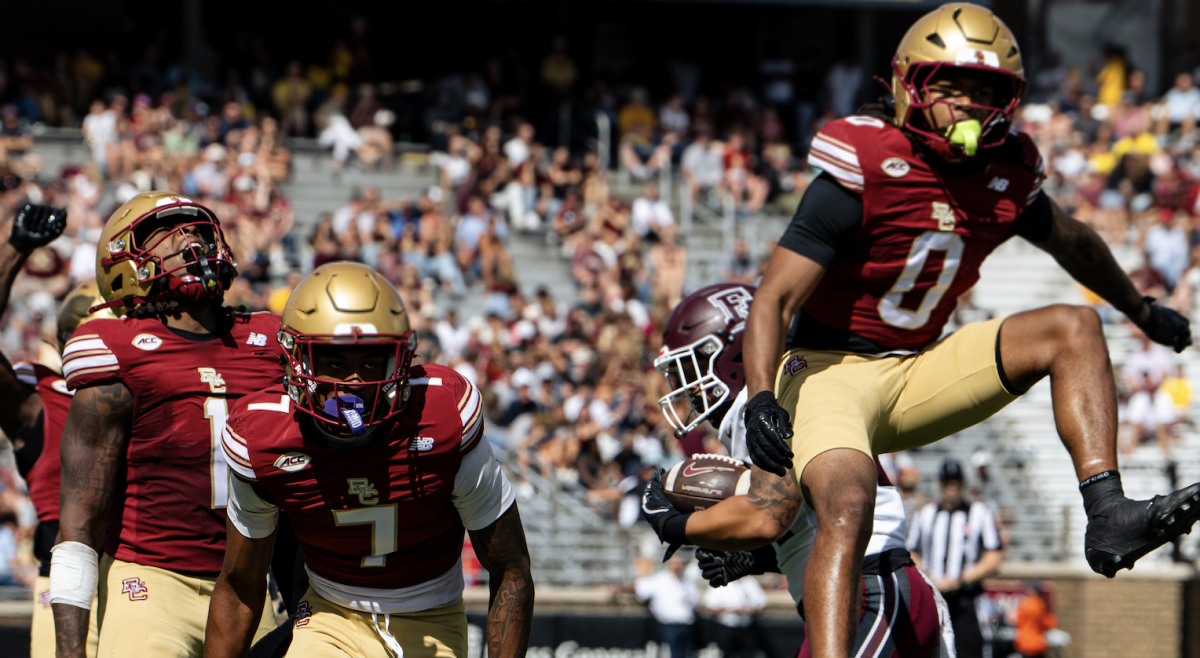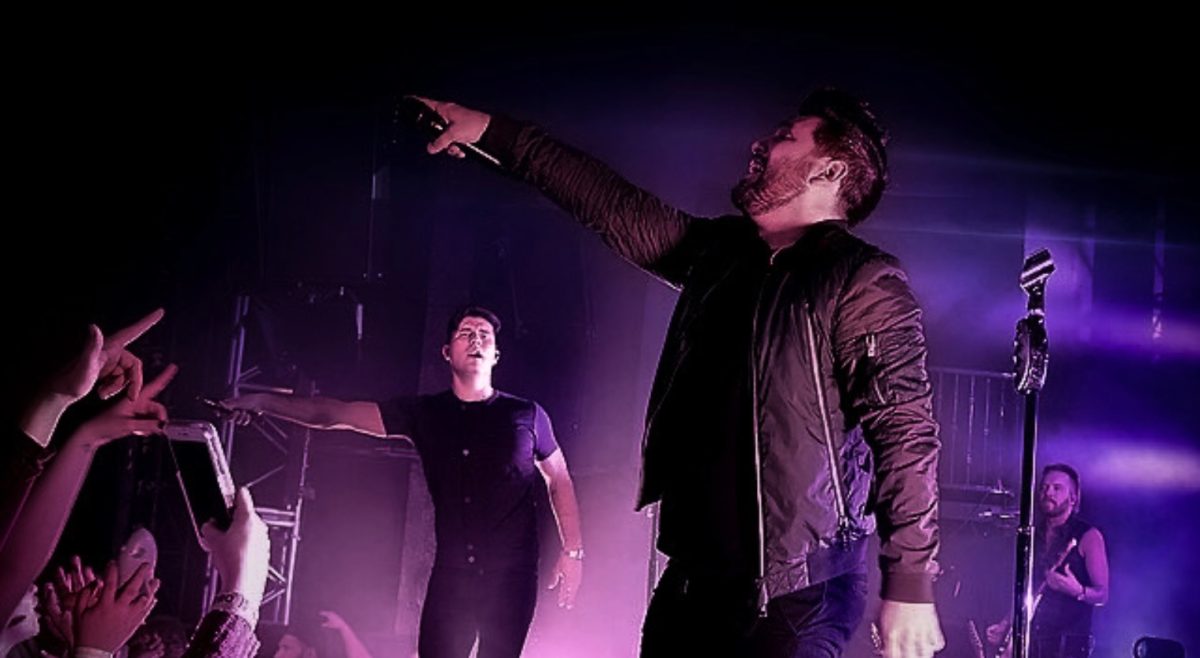The four teams competing for the Undergraduate Government of Boston College presidency and vice presidency met for the final debate on Sunday night. Unlike last week’s Diversity and Inclusion Debate—where candidates largely agreed on their ultimate goals—the meeting featured head-on criticism of both platforms and opponents.
In their opening statement, Christian Guma, CSOM ’21, and Kevork Atinizian, CSOM ’22, promoted their slogan, “Making the Heights Home,” arguing that the University hasn’t lived up to expectations.
“This past year, BC received 5,000 overall less applicants for the Class of 2024, simply showing how even prospective students are falling by the day and BC needs to keep up,” Atinizian said.
The Class of 2024 is the first group to apply since the University moved to an Early Decision policy, which requires early applicants to commit to attending BC should they be accepted. The University has said that the number applications fell within its expected range, given the new policy.
Guma and Atinizian also reiterated their pledge to not accept the stipends offered to UGBC president and vice president, which total $7,500 each year. Along with the other executive officers, who Guma and Atinizian have said in the past will forego the stipends, the funds would total $19,500.
Czar Sepe, MCAS ’21, deferred his opening statement to his running mate, Jack Bracher, MCAS ’22, who compared serving the student body to playing hockey—as both endeavors require commitment and communication between every person involved.
Dennis Wieboldt, MCAS ’23, anchored his opening statement in his status as a freshman, which he said provides him and his running mate, Lorenzo Leo, MCAS ’23, with the “fresh energy” UGBC needs this year.
“We’ve seen how an organization that is supposed to be devoted to advocating for the student body doesn’t even talk to the student body,” Wieboldt said. “The reason we’re running right now and not in two or three years is because we think we’re at a critical point in BC’s history.”
John Gehman, MCAS ’21, said that he and his running mate Leonardo Escobar, MCAS ’22, hope to fight for “the BC that [he] was promised.” Gehman said that before he arrived on campus, BC failed in its duty to make everyone feel welcome, specifically pointing to the lack of an LGBTQ+ resource center.
“When I came here as a queer student of color, I was promised by a Jesuit that Boston College was first a university and not a church,” Gehman said. “I thought I was going to be as supported as any other person here, but the fact of the matter is … the lack of a queer resource center is just a testament to why BC is not following its commitment to cura personalis.”
Much of the direct back-and-forth between teams came after the moderators asked questions tailored to specific policy proposals, beginning with Guma and Atinizian’s promise regarding stipends.
Guma, speaking first, acknowledged that he and Atinizian were in positions to use the funds for other purposes. He said that their budget proposal would allocate the stipend funds to creating Uber or Lyft discounts for students, mental health resources, and an LGBTQ+ resource center.
He went on to address Sepe and Bracher, who he said have attacked the stipend pledge as potentially excluding future candidates who might need the money. He also challenged the pair, twice, by asking them what they knew of his economic status.
“If you think that standing up for LGBTQ+ students, for Uber and Lyft discounts for students, and for mental health resources is exclusionary, I have a problem with that,” Guma said. “And Kevork and I didn’t appreciate the fact that we were trying to help the student body and we were attacked based on our need characteristics.”
In his rebuttal, Bracher asked how they planned to fund their proposals in the long term if future executives opt to accept the stipend. Sepe said that the stipend was a necessary part of ensuring students from low-income backgrounds can have a role in the executive branch.
Wieboldt praised Guma and Atinizian for not accepting the stipends, although he said that he had not taken a position on the issue himself. He disagreed with Sepe’s point that it could set a precedent for future candidates and admonished him for “using socioeconomic diversity on campus to score political points.”
The candidates also diverged on their approach to the Board of Trustees. Sepe and Bracher said that while they would be cooperative, they would also acknowledge any fundamental disagreements between the board and themselves—especially regarding BC’s devotion to sustainability campaigns and unwillingness to end investments in the fossil fuel industry. Sepe said that environmental consciousness in particular has been overlooked as an important Jesuit value.
On a referendum item in last year’s UGBC elections ballot, over 2,000 students—84 percent of those who voted—voted “Yes” on the question of whether BC should divest from fossil fuels. At the time, Associate Vice President of University Communications Jack Dunn said that the University believes that the most effective method of limiting the effects of climate change is a commitment to reducing energy usage and improving sustainability on campus.
Wieboldt and Leo said that they would engage the board as partners, rather than confront them with demands. Wieboldt outlined a list proposals that the pair would immediately demand, such as revising the student conduct process to include a hearing panel, restructuring the Morrissey College of Arts and Sciences advising system for first-year students, and creating a group of students and faculty that could work toward divestment.
Gehman and Escobar emphasized that they would approach the board as advocates for the student body, regardless of whether or not they agreed on topics such as divestment and sustainability. Social pressure, they said, would be the most effective tool for bringing about change.
Guma and Atinizian highlighted their commitment to creating an LGBTQ+ Resource Center, saying that on day one they would sit down with members of the GLBTQ+ Leadership Council to create a plan and present it to the Board of Trustees.
The candidates were also asked about the relationship between UGBC and student activism, including whether or not student government should remain neutral, stay behind the scenes, or act as an agent of social change.
Leo said that he hopes to fully support activism while staying mindful of UGBC’s role as a liaison between students and administrators. By the nature of its role, UGBC should not confront the administration, he said.
Sepe talked about the two major incidents of racism that have occured at BC over the past two years: the defacing of “Black Lives Matter” signs in Roncalli Hall and former student Michael Sorkin’s racist vandalism in Welch Hall.
“UGBC, as a vehicle for student advocacy, needs to channel that legitimate fear, that legitimate anger, that legitimate pain … to create that plan for it with the administration,” Sepe said.
Throughout the night, Wieboldt made a point of contrasting his tenure in the Senate with the other men on stage. Wieboldt repeatedly highlighted two accomplishments in his first term as a senator—the additions of water fountains in Medeiros Hall and printers in Stuart Dining Hall—which he said contrasted with the Senate’s inward focus.
He mentioned that in his first Senate meeting, he and Leo proposed a resolution that would make recorded minutes of UGBC meetings open to the public. The resolution, which was intended to increase transparency, was not passed, he said.
Wieboldt criticized the other candidates for arriving late or skipping last week’s Senate meeting, which resulted in a successful resolution advocating for a University response to the recent coronavirus outbreak in Wuhan, China. Gehman, Escobar, and Sepe arrived late after campaigning elsewhere on campus during hours set by the Elections Committee, while Atinizian and Bracher did not show up. Wieboldt arrived late from an off-campus internship and Leo, who was sick, did not attend.
“Oftentimes we hear from UGBC that our biggest challenge in getting things done is the administration. We fundamentally disagree with that,” Wieboldt said. “The biggest issue that UGBC has is itself.”
Featured Image by Maggie DiPatri / Heights Editor

